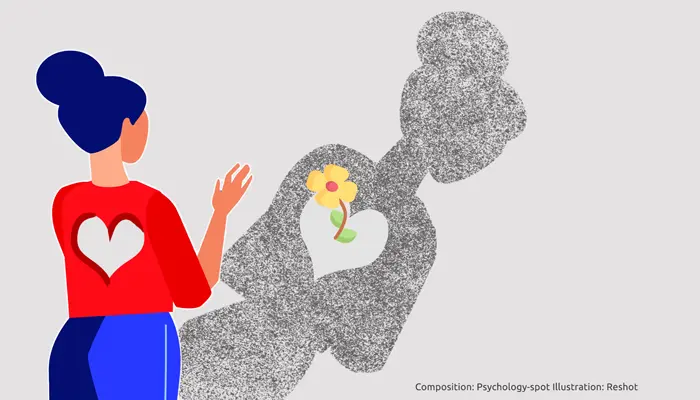
We tend to think that only negative changes hurt. We associate pain with loss, rejection and failure. However, there are positive changes in life that come with a dose of suffering. As the French writer Anatole France said: “All the changes, even the most longed for, carry a certain melancholy”.
Often these are chosen changes, which will probably make us feel better in the long term, but are not exempt from a discomfort that sometimes inundates us in the form of sadness, melancholy or even anxiety.
If we are not prepared to face that dose of discomfort, it is likely that this initially positive change will end up dragging us and the experience that at first seemed to be a path of roses will become a full-fledged road of suffering.
Every change is a step into the void
In life, some changes are chosen, others imposed by circumstances. However, they both lead us out of the comfort zone where we felt relatively safe and comfortable. The changes lead us to abandon the security mechanism that we had implemented. And that can scare us.
Our brain prefers the permanence and stability provided by the familiar and known. So when faced with a change, even if it is positive, it can activate a resistance mechanism. Resistance to change usually occurs when the future before us scares us, generally because the environment is too demanding or too uncertain.
We cannot forget that, even if a change is positive, such as a job promotion, moving to another city or breaking a toxic relationship, it is always an exercise in courage due to the degree of uncertainty it contains. Every change is, in its own way, a kind of leap into the void.
Some people will find it more difficult to pass through that uncertainty than others. Therefore, some positive changes in life can generate a certain dose of anxiety and stress.
The pain of saying goodbye to the past
If change is supposed to be positive, we can only feel excited, motivated, and happy. But it’s not always like this. The human mind is much more complex. Seldom things are entirely positive or completely negative.
Changes involve moving forward, so that we will have to leave behind experiences, habits or even people. Change is saying goodbye to some of the things that were part of our life or even our identity. And that can be particularly painful.
Renunciation is the price to pay when we want to enter a new stage in our life history. In that case we can assume change from an ambivalent posture because we know everything we are going to gain, but we are also aware of what we are going to lose.
If we do not deal well with the pain that this farewell can generate, the attachment to the past can end up slowing down the path of transformation that we had undertaken. It will become an obstacle that prevents us from moving forward.
So it is important to be aware that even if a change is positive, it can generate unexpected negative emotional states. To successfully pass that stage we need to accept that pain. We need to assume that every transformation is always an exchange of profit and loss between our past self and the future self.
We must also be prepared for the bad days, which will inevitably come and make us want to throw in the towel. In fact, the Transtheoretical Model of Health Behavior Change explains that the change process does not take place linearly. We go through various stages in which we move forward and backward, going through them again until the transformation is fully consolidated.
In order not to collapse as we walk down that path marked by ambivalent emotions and feelings, we must focus on the new opportunities that open before us. Remember what motivated us to take that step. Focus on what we want to achieve. And strive to update our current “self” to new circumstances.
Changes, even if positive, are not always easy. But if we grow through them, they will have been worth it.
Source:
Prochaska, J. O. & Velicer, W. F. (1997) The Transtheoretical Model of Health Behavior Change. Am J Health Promot; 12(1): 38-48.



